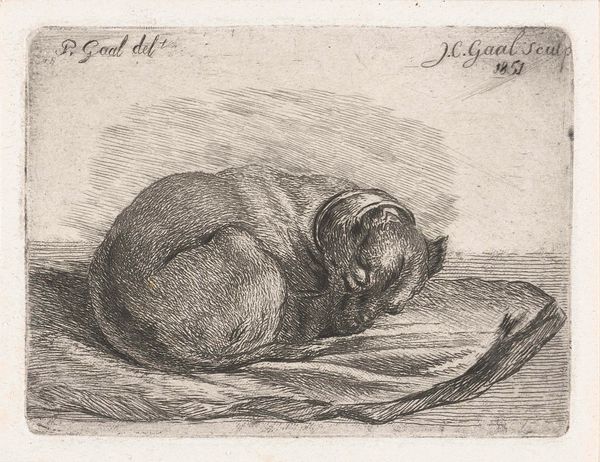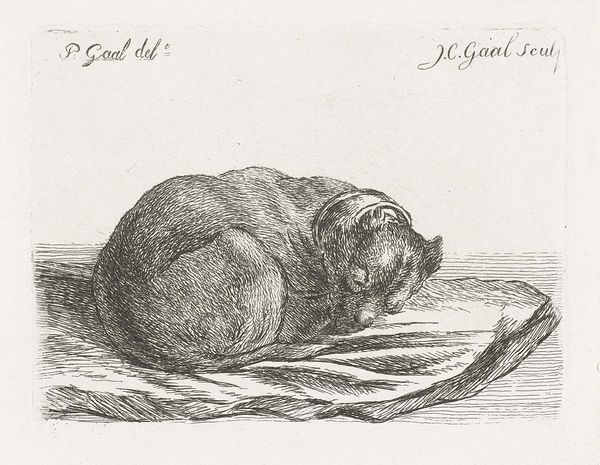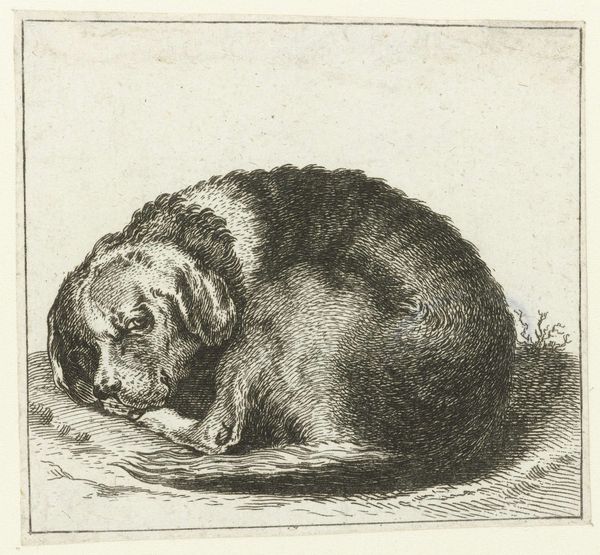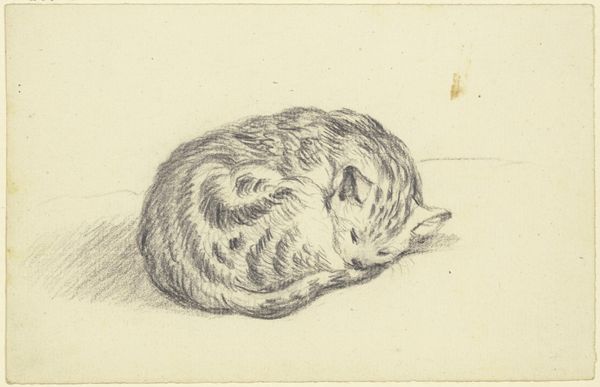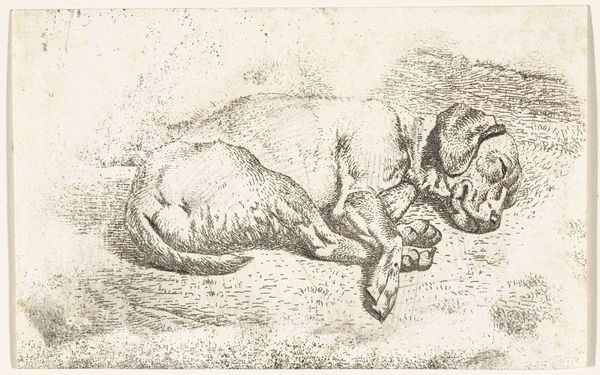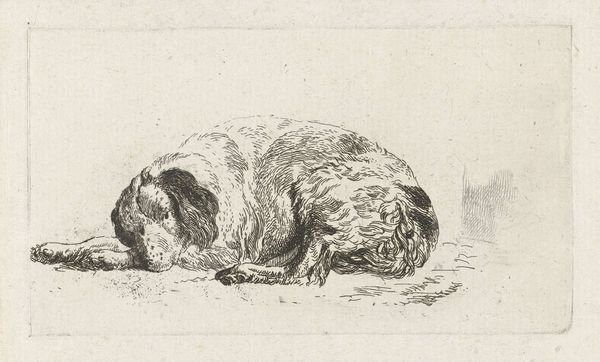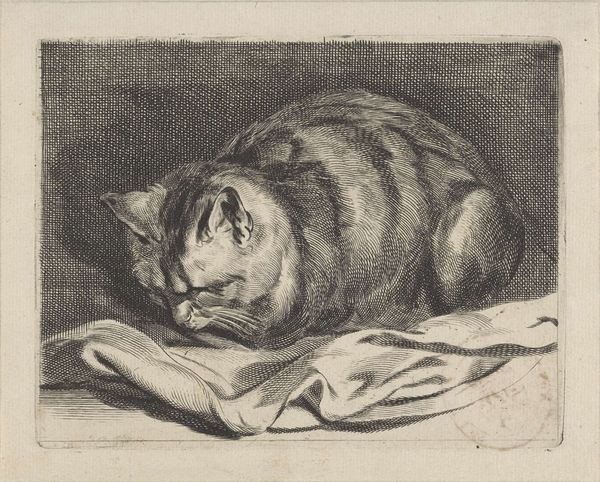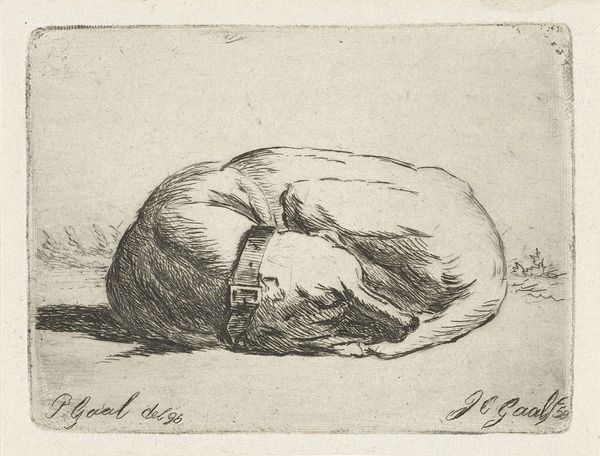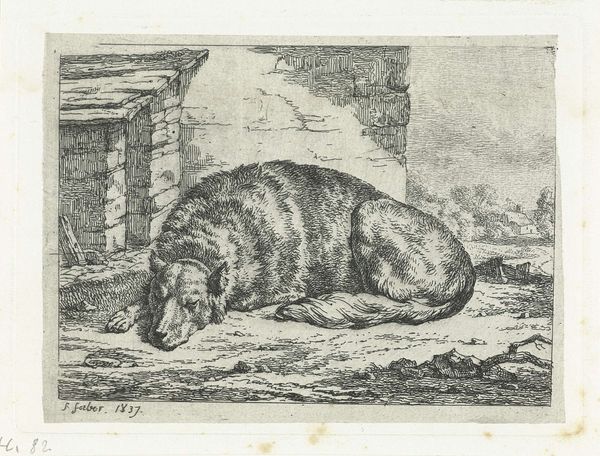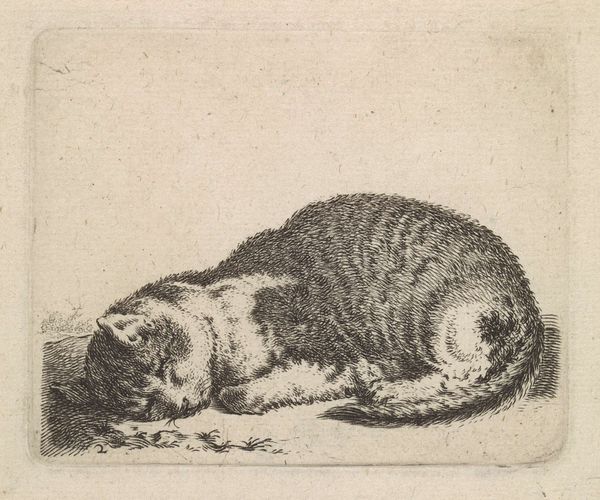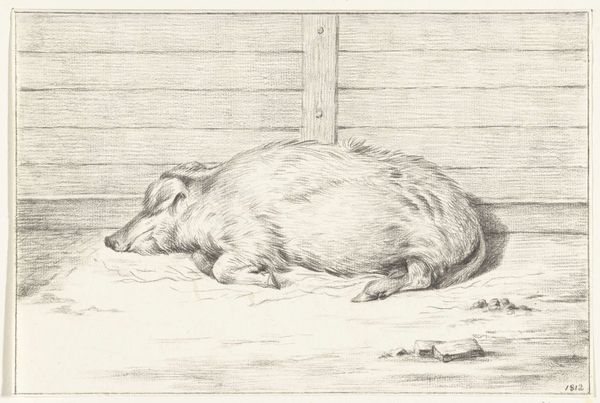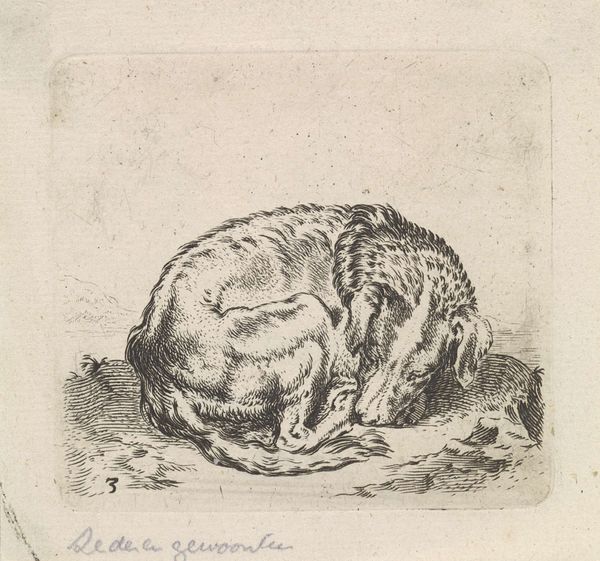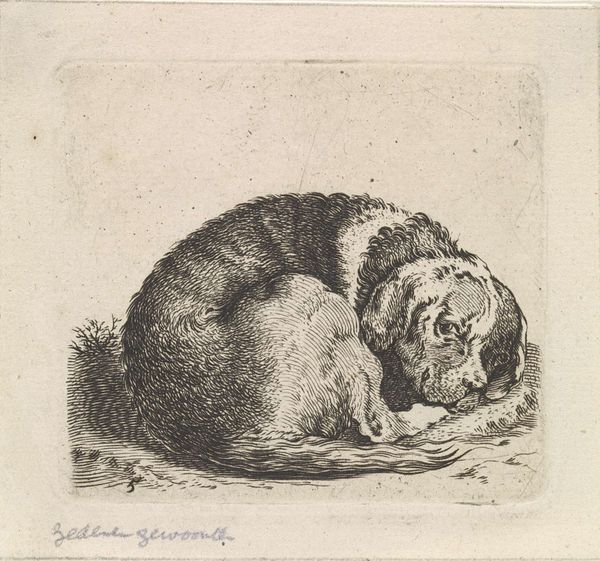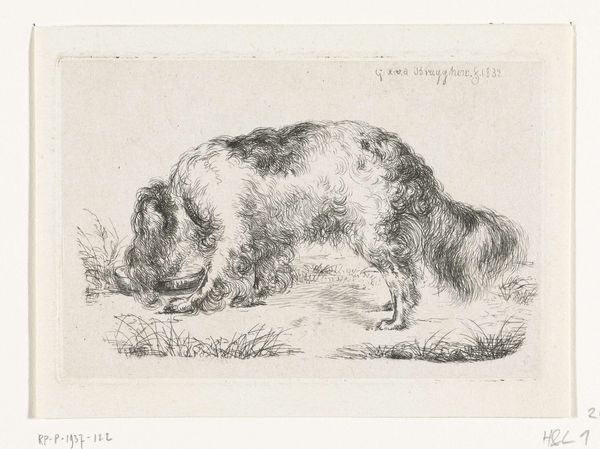
Dimensions: height 73 mm, width 97 mm
Copyright: Rijks Museum: Open Domain
Editor: This etching, "Slapende hond, liggend op een deken," or "Sleeping Dog Lying on a Blanket," created in 1851 by Jacobus Cornelis Gaal, has a comforting, intimate feel. The detail in the dog's fur is remarkable, and it really captures the animal's vulnerability. What do you see in this piece, particularly regarding its place within art history? Curator: The choice of subject is really interesting for the period. In the mid-19th century, artistic focus began to shift toward more everyday subjects, mirroring the rise of realism. The dog, in its unidealized, domestic state, signals this move. Consider how paintings of grand historical scenes, symbols of power and national identity, were giving way to more intimate, relatable subjects, and thus reshaping artistic institutions. Does this challenge older academic hierarchies, would you say? Editor: Absolutely, depicting a humble scene like this pushes back against the grand narratives of the time, especially those championed by the established art academies. This feels like a turn inward, towards personal experience. Curator: Exactly. And think about who the audience for such works might be. As a print, it would have had wider distribution than an oil painting, democratizing art and making it accessible to a growing middle class. It creates a space for personal reflection within a burgeoning consumer culture. How might the rising middle class identify with a comfortable domestic animal? Editor: It's fascinating to think about how this simple image connects to such broad social and economic shifts. I initially saw just a charming scene, but I now recognize it's speaking to wider issues of access and class in the art world. Curator: Precisely! It shows how even seemingly simple artworks can act as powerful mirrors reflecting complex societal changes, particularly the evolving role of art itself. Editor: Thanks so much. Now I’m wondering what other hidden layers I have missed in this exhibition.
Comments
No comments
Be the first to comment and join the conversation on the ultimate creative platform.
